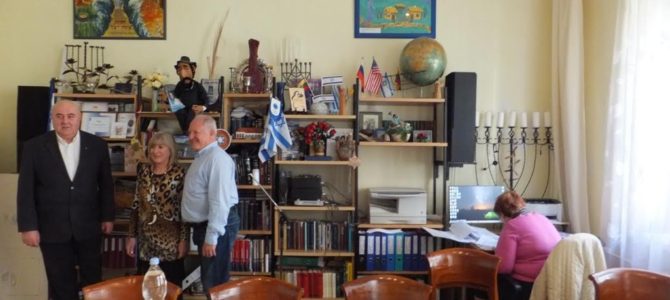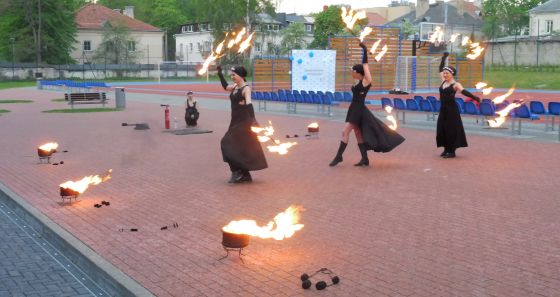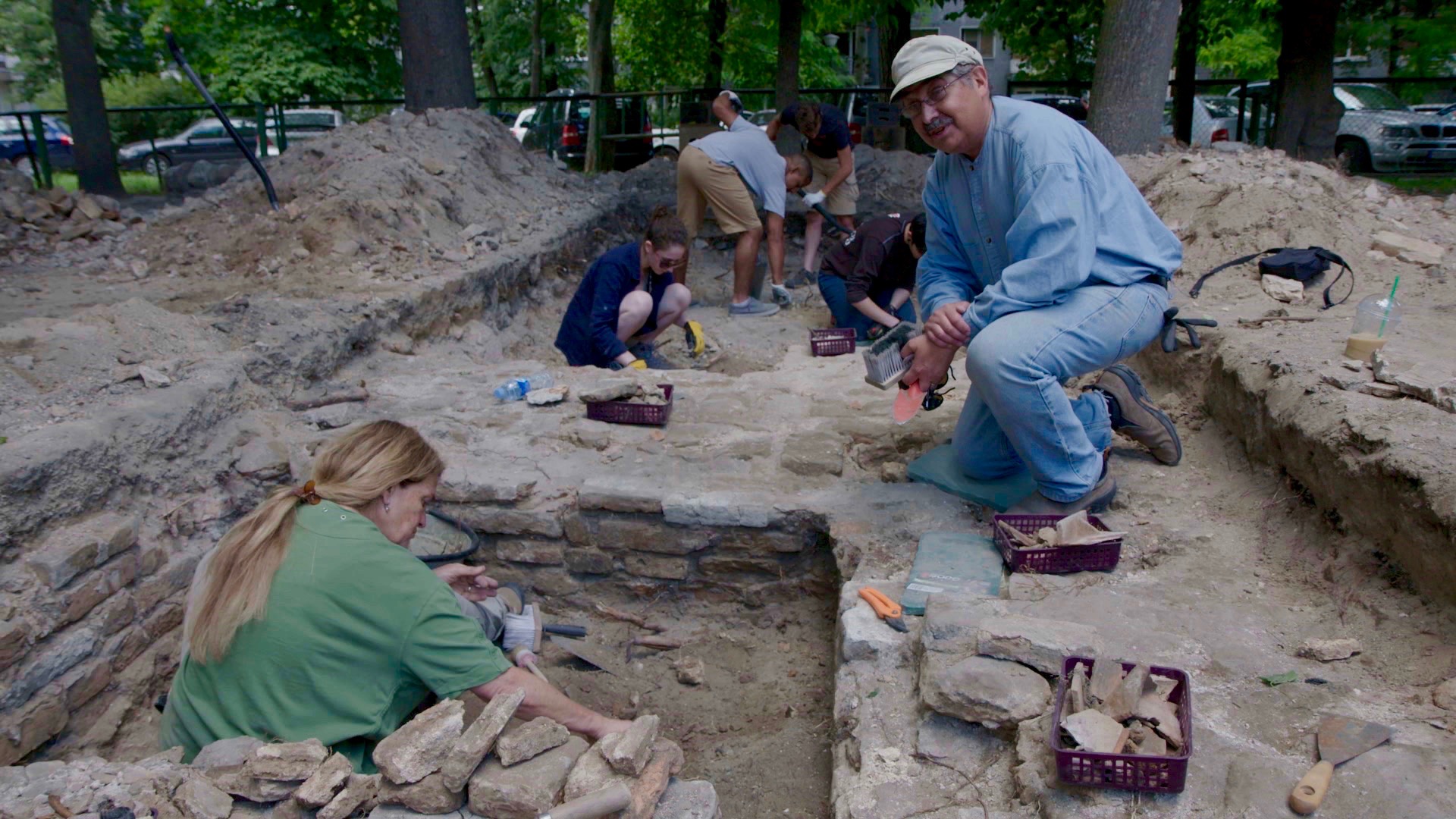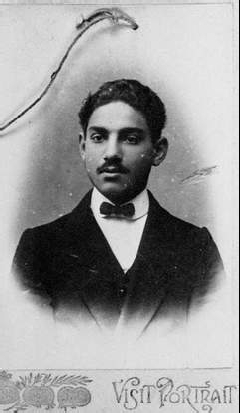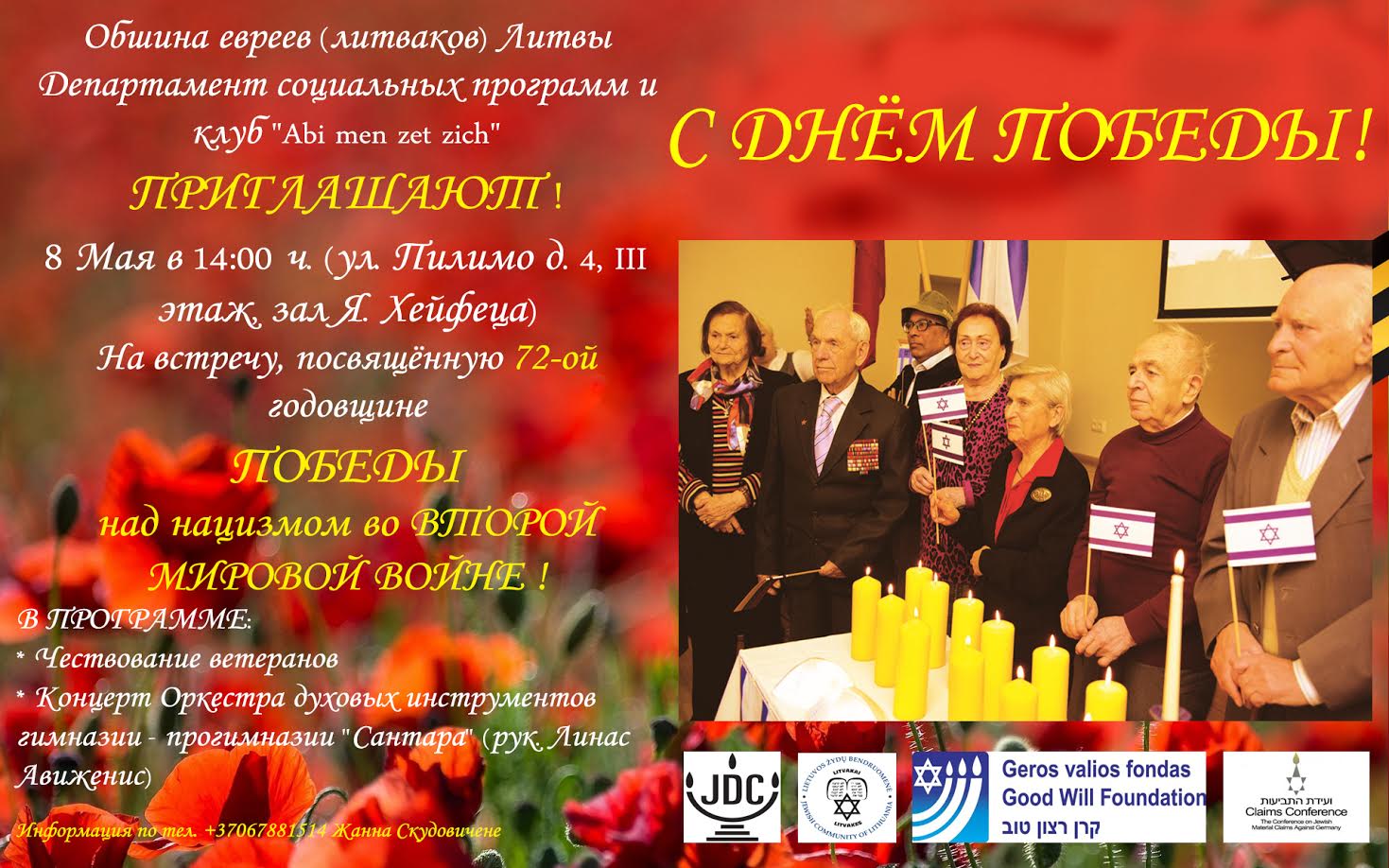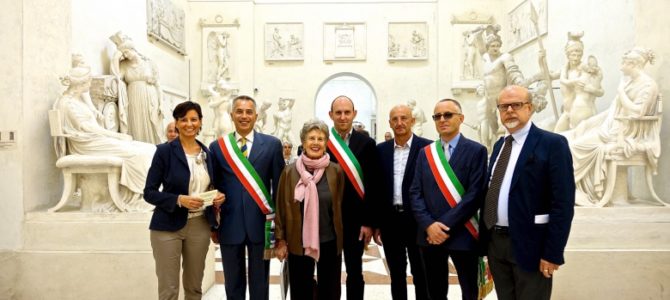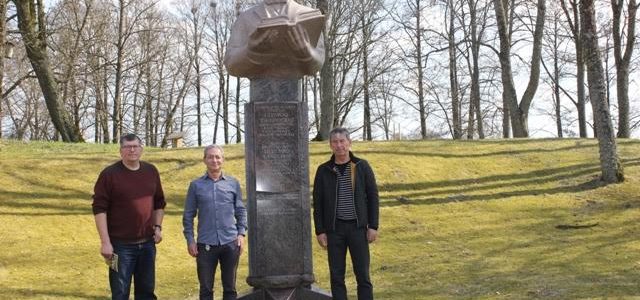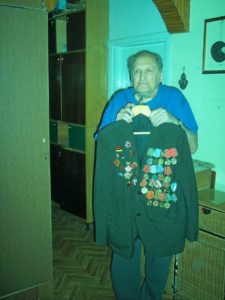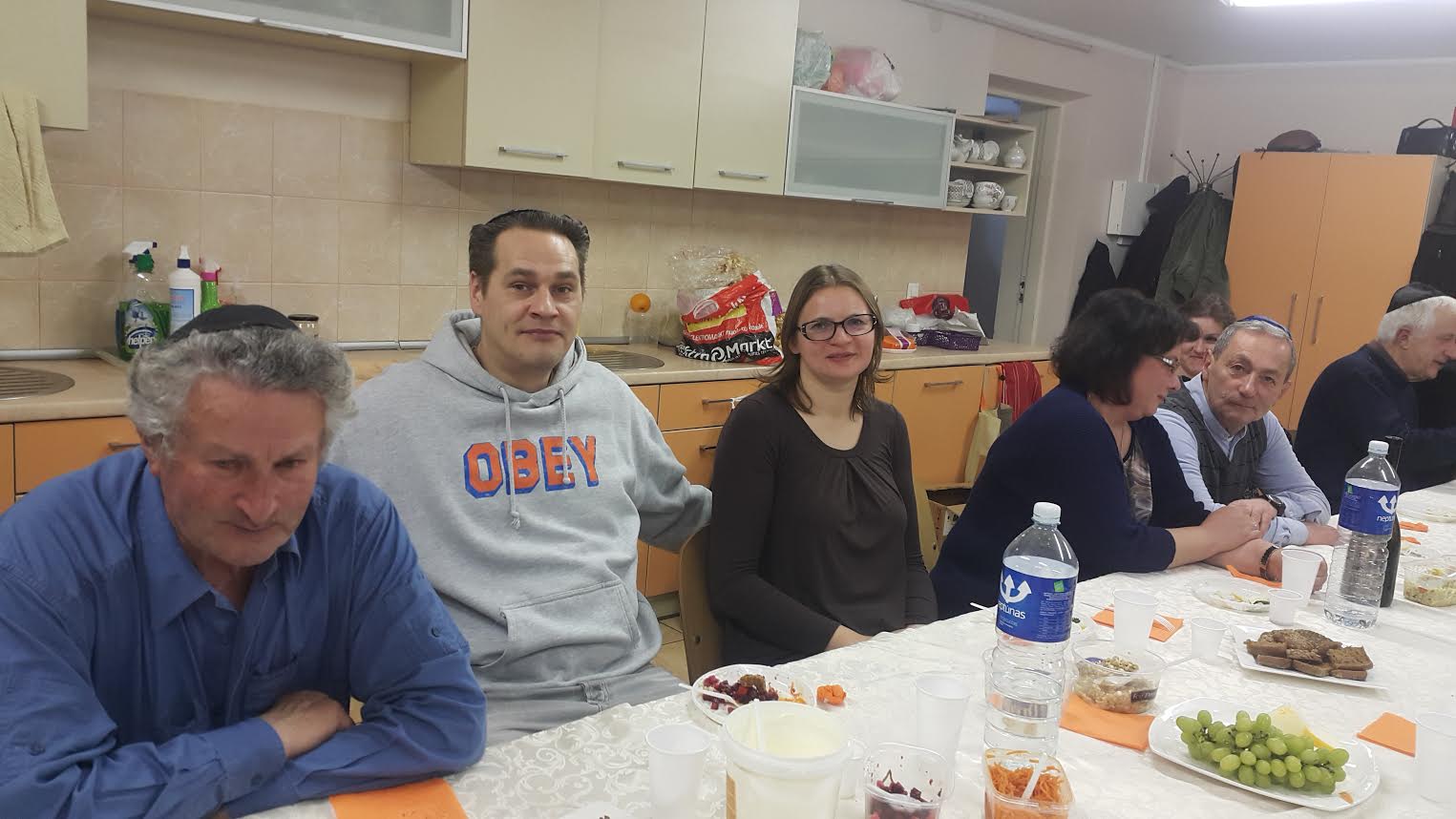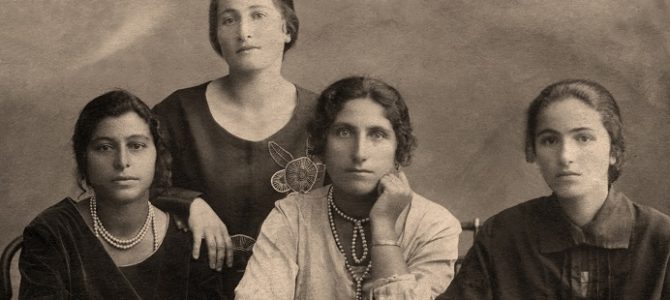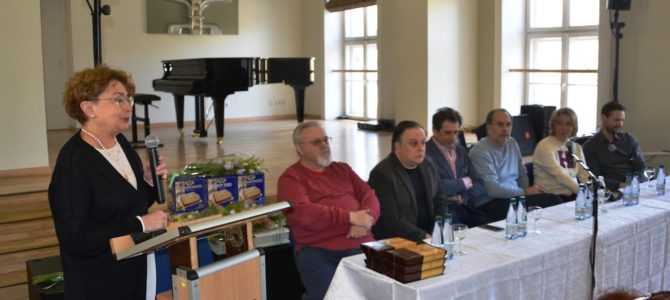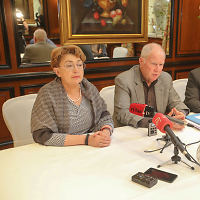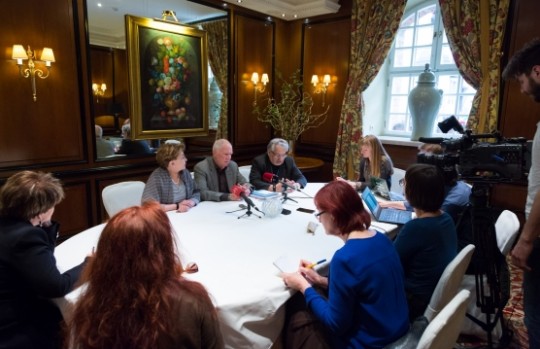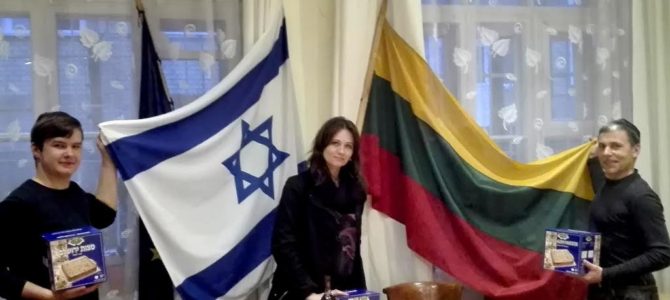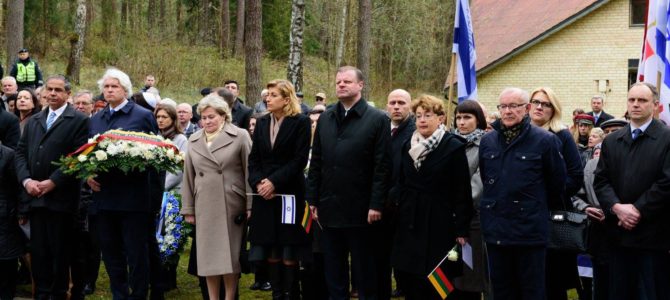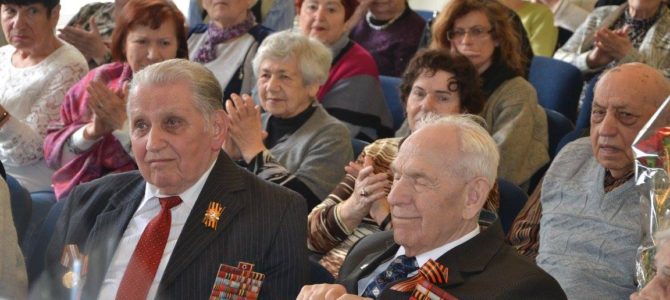
The Lithuanian Jewish Community celebrated Victory Day 2017 inviting the public to the Abi Men Zet Zich Club at the Community. The event included a ceremony to honor the heroes of World War II, our veterans and Community members.
An overflow crowd of about 140 people crammed into the hall and foyer to honor the memory of the fallen and to celebrate humanity’s victory over the Nazi death machine. Time has taken its toll on our veterans and now there are only 14 Jewish WWII veterans still living in Vilnius.
The event was organized by LJC Social Programs Department coordinator Žana Skudovičienė with the aid of volunteers and colleagues, with musical performances by Michailas Filipovas ( Jablonskis), Vadim Volkov and Rita Alterman. The Bagel Shop Café and Natali Restaurant catered the event and Arikas Krupas provided special beverages to the veterans as he has for many years now.
Our thanks go to everyone who took part and especially to the students in the woodwind orchestra of the Santara Gymnasium and Pre-Gymnasium in Vilnius and orchestra conductor Linas Avižienis.


